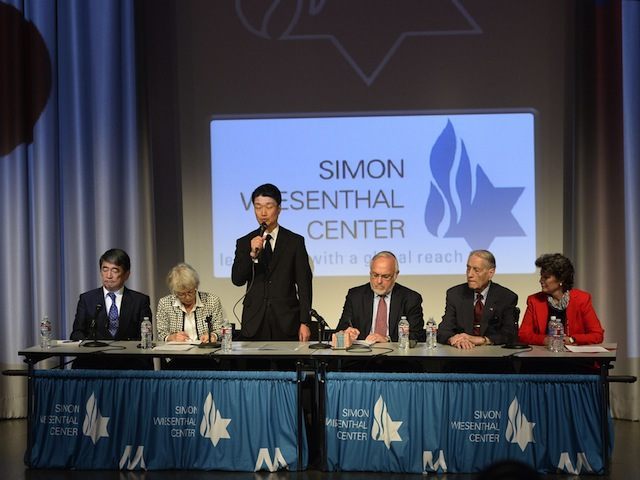(AFP) Japan’s Mitsubishi Materials made a landmark apology to US prisoners of war forced to work in its mines during World War II, seven decades after the conflict.
The Japanese government only officially apologized to former American POWs five years ago, and Mitsubishi’s initiative appeared to be the first of its kind by a Japanese corporation.
Senior Mitsubishi executive Hikaru Kimura presented a “most remorseful apology” to 94-year-old James Murphy of California, one of just a few surviving US prisoners forced to work in Japan.
Murphy accepted the “sincere, humble” apology.
“For 70 years since the war ended, the prisoners of war who worked for these Japanese companies have asked for something very simple — they asked for an apology,” he said.
“We hope to extend Mitsubishi’s gracious coming forward at this time to all the other mines and factories who employed American POWs against their will.”
Kimura and other company representatives met earlier with Murphy and families of other former POWs “to express our most remorseful apology for their being subjected to hard labor during World War II, when they worked in mines operated by Mitsubishi,” he said.
Speaking through a translator, Kimura noted that close to 900 POWs were assigned to hard labor at four mines in Japan.
Thousands of other US prisoners were pushed into slave labor at Japanese firms during the war.
“Working conditions were extremely harsh and the POWs were subjected to severe hardship,” he recognized, vowing to never let such a thing to happen again.
“As the company that succeeded Mitsubishi Mining, we cannot help feeling a deep sense of ethical responsibility for this past tragedy.”
The apology was made during a ceremony at the Simon Wiesenthal Center’s Museum of Tolerance in Los Angeles. The center is dedicated to the rights of Holocaust survivors.

COMMENTS
Please let us know if you're having issues with commenting.